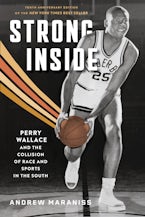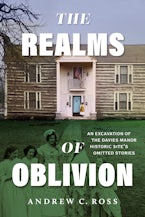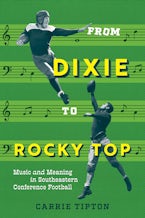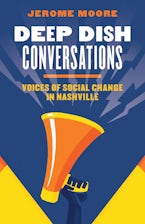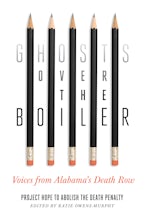- Home
- A Word on Words
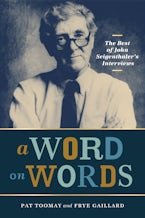
A Word on Words
The Best of John Seigenthaler's Interviews
Edited by Pat Toomay and Frye Gaillard
Epilogue by Andrew Maraniss
Featuring interviews with:
Arna Bontemps • Marshall Chapman • Pat Conroy • Rodney Crowell • John Egerton • Jesse Hill Ford • Charles Fountain • William Price Fox • Kinky Friedman • Frye Gaillard • Nikki Giovanni • Doris Kearns Goodwin • David Halberstam • Waylon Jennings • John Lewis • David Maraniss • William Marshall • Jon Meacham • Ann Patchett • Alice Randall • Dori Sanders • John Seigenthaler Sr. • Marty Stuart • Pat Toomay
Part I: Civil Rights
Arna Bontemps, Free at Last: The Life of Frederick Douglass and Great Slave Narratives
John Egerton, Speak Now against The Day
John Lewis, Walking with The Wind
David Halberstam, The Children
Frye Gaillard, Cradle of Freedom
Part II: Literature
Jesse Hill Ford, The Liberation of Lord Byron Jones
Pat Conroy, The Death of Santini
Ann Patchett, The Patron Saint of Liars
Dori Sanders, Clover
Alice Randall, The Wind Done Gone
Nikki Giovanni, Chasing Utopia
Part III: Music
Marshall Chapman, Goodbye Little Rock and Roller
Marty Stuart, Country Music: The Masters
Rodney Crowell, Chinaberry Sidewalks
Waylon Jennings, Waylon: An Autobiography
Kinky Friedman, The Love Song of J. Edgar Hoover
Part IV: Sports
Charles Fountain, Sportswriter: The Life and Times of Grantland Rice
William Marshall, Baseball’s Pivotal Era, 1945–1951
William Price Fox, Satchel Paige’s America
Pat Toomay, On Any Given Sunday
Part V: The Presidency
Jon Meacham, Thomas Jefferson: The Art of Power
Doris Kearns Goodwin, Team of Rivals
David Maraniss, Barack Obama: The Story
John Seigenthaler Sr., James K. Polk
Epilogue, by Andrew Maraniss
Books Featured in This Volume
John Seigenthaler (1927–2014) was born in Nashville, Tennessee. He attended Peabody College and worked as a reporter for the Tennessean. In 1960, he went to work for Attorney General Robert Kennedy and, in that capacity, was attacked by an angry mob in Montgomery, Alabama. He returned to the Tennessean, where he spent the rest of his career. He hosted the television program A Word on Words for four decades.
Pat Toomay attended Vanderbilt University and played in the NFL for ten years. He has written a number of books, including On Any Given Sunday.
Frye Gaillard is the author-in-residence at the University of South Alabama. He has written more than twenty books, including With Music and Justice for All: Some Southerners and Their Passions (Vanderbilt, 2008). He is an alumnus of Vanderbilt University.
"Only Seigenthaler could get these esteemed writers to open up and loosen up to discuss writing, art, and their life experiences."
—Beverly Keel, Dean of the College of Media and Entertainment, Middle Tennessee State University
"This book captures my father's passion for literature and highlights his interviews with some of the most famous authors of our time. He used A Word on Words to encourage his viewers to 'keep reading,' a message that is as important today as it was when he started the program more than four decades ago."
—John M. Seigenthaler
John Seigenthaler was a young reporter in Nashville when the civil rights movement began in that city. Partly because of that, and partly because of his experience with the movement as a member of Robert Kennedy’s Justice Department, Black struggles for equality became a recurring theme on A Word on Words.
These five interviews are grouped chronologically according to the subjects they cover. We begin with Arna Bontemps, a leading figure in the Harlem Renaissance and one of the most prolific African American scholars of the twentieth century. At the time of his interview with Seigenthaler, Bontemps was head librarian at Fisk University and had released two books that year: Free at Last: The Life of Frederick Douglass and Great Slave Narratives.
John Egerton, a renowned journalist/historian living in Nashville, won the Robert F. Kennedy Prize for his book Speak Now against the Day, telling the story of a generation of Southerners who worked for racial progress before the beginning of the civil rights movement. As Egerton explains, these were men and women, Black and white, who looked at the racial order in the South and said, “This won’t work.”
One of Seigenthaler’s most iconic guests on A Word on Words was John Lewis, who emerged from his leadership role in the civil rights struggle to become one of the most beloved members of the US Congress. He talks about his memoir, Walking with the Wind, winner of the Lillian Smith Book Award.


